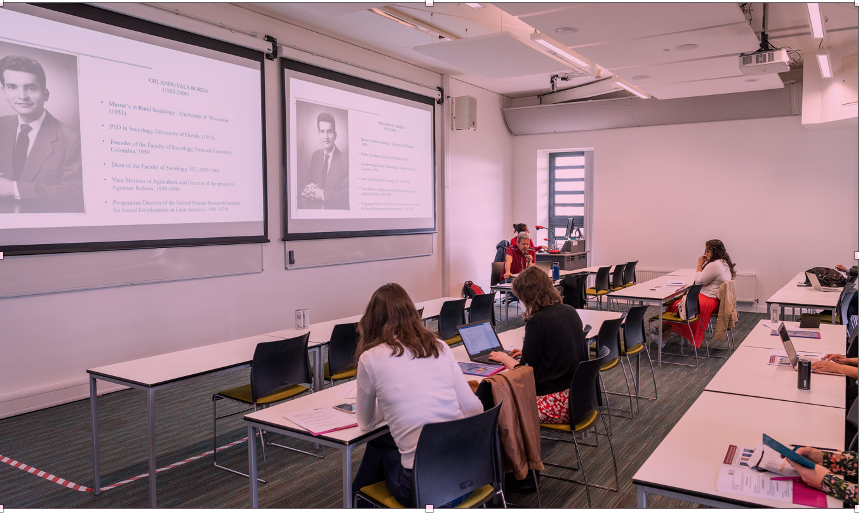Orlando Fals-Borda’s Participatory Turn, 1977-1980 by Juan Mario Díaz-Arévalo

Juan Mario Díaz-Arévalo has published a paper with ARJ entitled “In search of the ontology of participation in Participatory Action Research: Orlando Fals-Borda’s Participatory Turn, 1977-1980.” He introduces his paper:
“My article provides an evidence-based account of the development of the “participation” concept in the thinking and practice of Orlando Fals-Borda, one of the pioneers of Participatory Action Research (PAR). It argues that Cornwall’s (2000) distinction between participation “for”, “by”, and “with” the people can be used as a lens to examine Fals-Borda’s epistemological shift from historical materialism to the participatory paradigm —what this article calls the ‘participatory turn’. Although crucial for the inception of PAR, this turn, reminiscent of his earlier break with positivism, remains a major gap in the vast literature on Fals-Borda’s work.
The distinctive aspect of Fals-Borda’s participatory turn is its radical but also collaborative and dialogical nature. Therefore, building on Fals-Borda’s collaboration with an emerging constellation of participatory researchers such as Budd Hall, Vío Grossi and Anisur Rahman, among others, it engages with the question of how Fals-Borda connects to the PAR lineage, while discussing synergies and connection between Global North and South.
The emergence and subsequent proliferation of participatory methodologies have been nevertheless accompanied by criticism of such methods as paternalistic and instrumental for development programmes. Moreover, contemporary literature on PAR tends to overlook the history of the origins of PAR in the 1970s and 80s in Colombia and more broadly in the Global South. To robustly engage with the critiques of PAR and overcome the general amnesia about the origins of PAR, this article focuses on Fals-Borda’s shift from participation by to participation with the people. It concludes that for all the innovations in tools and techniques of action-oriented research, the ontology of participation is what fundamentally differentiates PAR from other instrumental or top-down forms of people’s participation.
Written from an epistemological standpoint, this article seeks to contribute to understanding and historicizing the growth of the PAR movement through revisiting the thought processes of some of the luminaries of PAR.”
The full article is available at this ‘forever’ link: DOI: https://journals.sagepub.com/doi/full/10.1177/14767503221103571
- Three stories we did not tell about NGO-Community Collaboration in Uganda - April 18, 2024
- Podcast on PAR Peacebuilding in Colombia - April 15, 2024
- Julian Hauer’s Workshop– thinking wider and deeper - April 15, 2024
